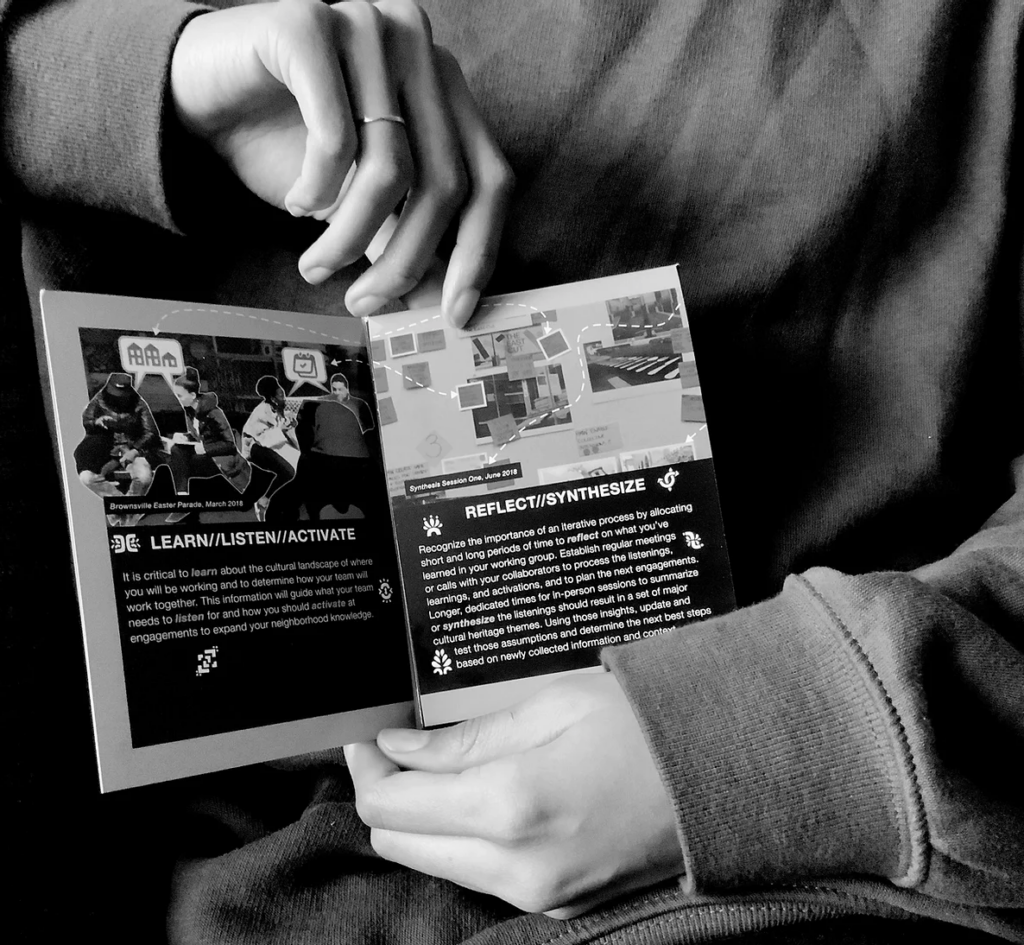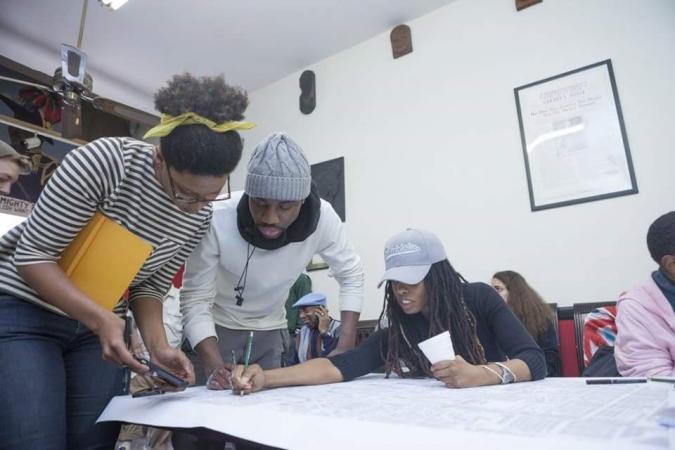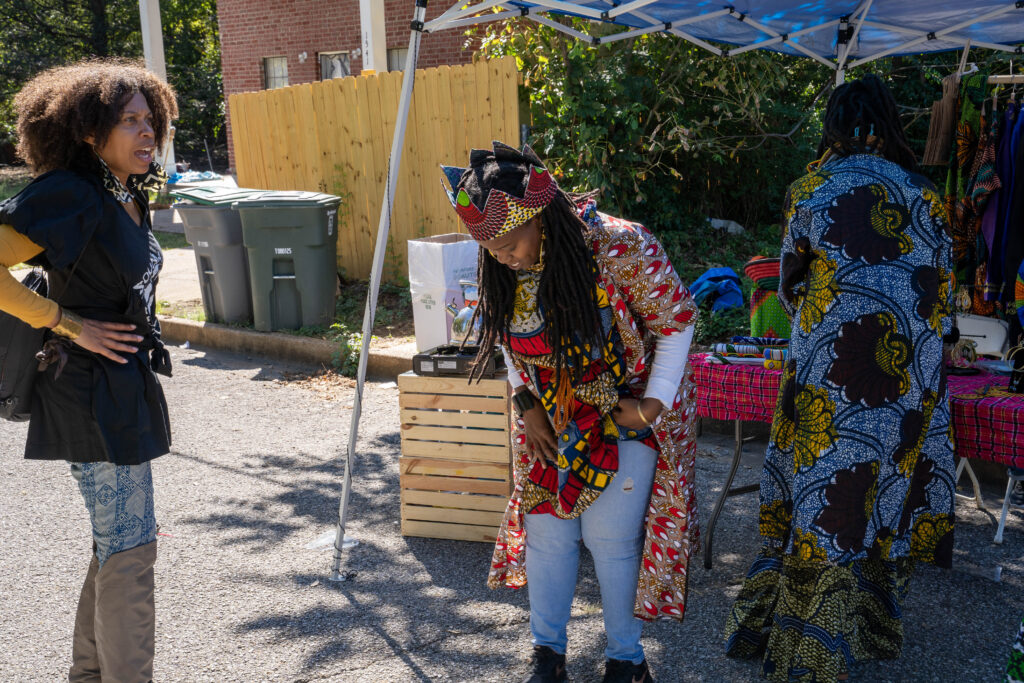Right now, we are living in a pivotal moment in our nation’s racial trajectory, and the whole country is paying attention to the Black Lives Matter movement’s call to action. From small backyard gatherings to busy city streets, people everywhere are standing in solidarity with Black lives. They’re listening, they’re learning, and they’re fighting positive change that will move us all toward a more racially just society.
We know that we have a long way to go until we get to justice, but we know that achieving racial justice is possible. It will take neighbor leaders like you uniting to celebrate and honor Black history, stand against racism and fight for justice in the present, and look toward the future with hope.
So today, we’re sharing the stories of several ioby projects that are exploring what a just future might look like, and investing in their communities as they chart a path to that future. We hope you’ll be as inspired by these changemakers as we are! This is the final piece of a three-part series on fighting for Black lives; be sure to check out our previous posts about honoring Black lives of the past and sustaining the fight in the present.

BlackSpace
When you visit the homepage of BlackSpace Urbanist Collective, you’ll see a list of Black people who tragically have been murdered or have lost their lives as a direct result of anti-Black racism. Next to each name is a location that describes where the person was when they were apprehended by police or shot. These locations are spaces that are supposed to be safe—inside a home, on a sidewalk, playing in a park—and yet, for Black people, they are not.
“Urbanists design and plan the built environments where these tragedies occur. The disciplines impacting [them] are steeped in racism and anti-Blackness,” BlackSpace’s leaders say. So they’ve mobilized to create a collective of architects, urban planners, designers, and other artists to re-think Black urbanism and build a future “where Black people, Black spaces, and Black culture matter and thrive.”
After working for years with neighbors across the country to envision what a just neighborhood looks like (and an ioby campaign along the way), they released a manifesto to guide their work and help them grow. Now, they’re fundraising to continue their design justice work around the country.

North Philly Peace Park Peace Pavilion Project
Founded in 2012, the North Philly Peace Park is an urban agriculture campus that’s “planting the seeds for green space, Black joy, and sustainability in North Philly,” says Maya T, the project’s leader. She and her fellow organizers transformed once-vacant lots in the Sharswood neighborhood into a thriving space that addresses many of the community’s critical issues, including poverty, food insecurity, and resident displacement.
Since then, project leaders have been fighting to keep the park alive. When the facility was displaced in 2015, it was moved to another location. And after undergoing a multi-year redevelopment process, the new park is nearing completion.
The final step will be to build an on-site pavilion inspired by Afrofuturism that “will merge and highlight continuities between ancient African architecture…and modern African American architecture typologies,” Maya says. “The construction of the pavilion and landscape will solidify the long history of Black activists and culture by creating a beautiful green space where Black life is affirmed.”

South Memphis Future & Funk Community Garden
Music has a way of bringing people together, and no one understands that better than the folks of South Memphis, Tennessee. Deep in the heart of the city, you’ll find some of the strongest roots to soulful music and a community that’s united by their shared pride for their heritage. In fact, South Memphis is home to the legendary Stax record label, and it’s the birthplace of famed Afrofuturistic funk-crooner Maurice White. In South Memphis, “home” is where community meets music.
So Shay S and her neighbors decided to celebrate their hometown and help pave the way for a more equitable future by building a community art garden. “The garden will honor the past/current ideas of the meaning of ‘home’ in South Memphis and will reimagine what the future of South Memphis as home will mean using art, photographs, and nature,” she says.
The art garden will be a multi-generational project that’ll give residents the opportunity to have a beautiful seating and meditation area. “Our garden celebration will provide information about creative ways to reimagine vacant spaces in South Memphis and offer information on fair and equitable housing that helps to combat [local] inequalities, especially related to housing and vacant land.”
Taking action in ways big and small
Building a racially just future will take all of us engaging in ongoing work. It also means we’ll have to face discomfort, stay committed, and lean on one another throughout the process. It’ll be tough, but it’s important—and we know you can do it! At ioby, we’re here to support you as you fight for racial justice, no matter what that might look like in your neighborhood.
Interested in starting or contributing to a racial justice project? Awesome! Our Black Lives Matter Resource Page, our Racial Justice Toolkit, and our list of projects that are currently fundraising contain information and resources you might find helpful.
But grassroots projects aren’t the only way you can affirm that Black lives matter. The decisions you make every day can have an impact, too! Many of our Black neighbors are already calling on us to take action in our day-to-day lives. We’ve got a few suggestions for how to start listening to and amplifying Black voices; you can do a quick Google search to find more.
- Educate yourself about Black history and anti-racism. (You can find some book suggestions here, here, and here.)
- Commit to including Black authors in your regular reading routine.
- Seek out Black-owned businesses in your area to support. (Several recent studies have shown that COVID-19 has decimated many Black-owned small businesses.)
- Find out which companies are taking true steps to eliminate the racial wealth gap, then use that research to change your consumer behavior.
Every action is important in the fight against racism and Black oppression, and we know our work is far from done. But Carmen Lane, the leader of the ATNSC Center for Healing and Community Leadership, reminds us to remain hopeful as we consider the big picture. “If you actually believe in racial justice,” she says, “that means you know that racism will end.”
We’d love to invite you to join us on our journey to end racism. Have an idea and ready to start your own racial justice project? Get in touch and tell us about it!